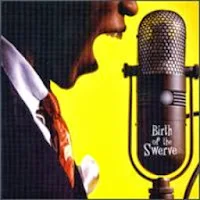Styles: Neo Swing
Label: Orbital Records
Released: 1998
File: mp3 @320K/s
Size: 64,3 MB
Time: 28:03
Art: front
1. Man With the Hex - 3:15
2. Spanish Fly - 3:29
3. Mata Hari - 3:15
4. Spider Baby - 3:50
5. Caviar and Chitlins - 2:51
6. Starve a Fever - 3:22
7. Catfish Ball - 4:40
8. Devil Is Dancing - 3:19
Label: Orbital Records
Released: 1998
File: mp3 @320K/s
Size: 64,3 MB
Time: 28:03
Art: front
1. Man With the Hex - 3:15
2. Spanish Fly - 3:29
3. Mata Hari - 3:15
4. Spider Baby - 3:50
5. Caviar and Chitlins - 2:51
6. Starve a Fever - 3:22
7. Catfish Ball - 4:40
8. Devil Is Dancing - 3:19
Personnel:
John Bunkley - vocals
James Bostek - trumpet
Tony Buccilli - trombone
Eric Schabo - tenor sax
Duke Kingins - guitar
Randy Sly - piano
Shawn Scaggs - double bass
Geoff Kinde - tubs.
Notes: Frontman John Bunkley and trumpeter James Bostek formed The Atomic Fireballs in Detroit in 1996. There wasn't much of a swing craze at the time, nevertheless they set out to take the jump blues of the 1940s and bring it up to date with a more contemporary element.
Artists such as Wynonie Harris and Louis Jordan defined the genre's golden age. Unlike other "neo swing" groups (including the Cherry Poppin' Daddies, Royal Crown Revue, and the Brian Setzer Orchestra), The Atomic Fireballs brought something more to their style of jump blues, namely onstage energy and the musical influences of ska and punk.
Some modern swing fans say The Atomic Fireballs weren't really "swing" at all, claiming that the group played too fast for them to Lindy Hop. But they never intended to fit into the same category as the other swing revivalists, "We were just trying to put a roots-rock band together, so we always approached it with a harder edge," Bunkley explained.
They performed as part of the Vans Warped Tour, a concert series featuring bands playing a range of music from punk to hip-hop. The Atomic Fireballs felt right at home amid the skateboarders and punk kids. "Those people gave us our shakes, man. They looked at us in the first couple songs and then their heads started bobbing. By the end they asked for more," Bunkley recalled.
After proving that the Atomic Fireballs could appeal to a variety of audiences rather than exclusively to swing enthusiasts, the band received several offers from major label record companies. Signing with Lava/Atlantic, the band worked with producer Bruce Fairbairn to release the twelve-track album "Torch This Place" in the late spring of 1999.
John Bunkley - vocals
James Bostek - trumpet
Tony Buccilli - trombone
Eric Schabo - tenor sax
Duke Kingins - guitar
Randy Sly - piano
Shawn Scaggs - double bass
Geoff Kinde - tubs.
Notes: Frontman John Bunkley and trumpeter James Bostek formed The Atomic Fireballs in Detroit in 1996. There wasn't much of a swing craze at the time, nevertheless they set out to take the jump blues of the 1940s and bring it up to date with a more contemporary element.
Artists such as Wynonie Harris and Louis Jordan defined the genre's golden age. Unlike other "neo swing" groups (including the Cherry Poppin' Daddies, Royal Crown Revue, and the Brian Setzer Orchestra), The Atomic Fireballs brought something more to their style of jump blues, namely onstage energy and the musical influences of ska and punk.
Some modern swing fans say The Atomic Fireballs weren't really "swing" at all, claiming that the group played too fast for them to Lindy Hop. But they never intended to fit into the same category as the other swing revivalists, "We were just trying to put a roots-rock band together, so we always approached it with a harder edge," Bunkley explained.
They performed as part of the Vans Warped Tour, a concert series featuring bands playing a range of music from punk to hip-hop. The Atomic Fireballs felt right at home amid the skateboarders and punk kids. "Those people gave us our shakes, man. They looked at us in the first couple songs and then their heads started bobbing. By the end they asked for more," Bunkley recalled.
After proving that the Atomic Fireballs could appeal to a variety of audiences rather than exclusively to swing enthusiasts, the band received several offers from major label record companies. Signing with Lava/Atlantic, the band worked with producer Bruce Fairbairn to release the twelve-track album "Torch This Place" in the late spring of 1999.
Birth of the Swerve

